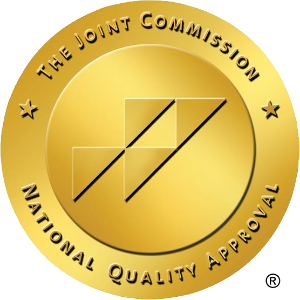Starting a journey to sobriety and a life of recovery is littered with challenges and difficulties with early sobriety fatigue being a major one. Changing what you put into your body always has an effect and unfortunately it sometimes gets worse before it gets better. So if you have recently quit and feel tired and lazy all the time do not fret, it happens to most people.
What Is Early Sobriety Fatigue
Early sobriety fatigue is exactly what it sounds like, you have trouble sleeping and always feel lethargic. Feeling lethargic is a common side effect of withdrawal from most substances and while you will experience the most insomnia and sleep deprivation during your initial detox it may linger for months afterwards.
The reason your body is having trouble sleeping is because drugs and alcohol change your body’s REM and sleep cycles. Additionally, living a life of addiction can lead to bad sleeping schedules, long times spent staying awake, and a poor diet. All of these variables play into your sleeping troubles and cause your lethargy.
The lethargy and sleep issues are usually bad enough to affect how you problem solve and how you handle your emotions. This makes it important that you try and work through these side effects and start to feel better.
Fighting Back
While early sobriety fatigue is virtually unavoidable, there are some simple things that you can do to help limit its effects. Luckily most of this advice will create a solid foundation for you to maintain your sobriety going forward, making these habits twice as important.
Create A Sleeping Routine
Unsurprisingly the best place to start when trying to sleep better is with your sleep schedule and your routine before bed.
Maintaining a specific sleeping schedule where you go to sleep at the same time and wake up at similar times, even on the weekends, will set your body up for good sleep. Starting a new schedule will be difficult and you will not see immediate results, but you must resist the urge to nap so your body can get back in rhythm.
To help your body start to adapt to the new sleeping schedule it is beneficial to also set-up a pre-bedtime routine. While everyone’s routine will look slightly different, you should make a plan that involves putting your phone down and avoiding screens for at least 30 minutes before you try to go to sleep.
You can also choose to build in relaxing habits like taking a bath, reading a book, or listening to relaxing music before you go to bed to help let your body know that you are heading to bed soon.
Exercise
Unfortunately when you are lethargic it will not be easy to motivate yourself to go to the gym or do any wild workouts. Instead start with simple workouts like walking around the block, or going on a light jog in the woods.
Exercise will jumpstart all of your body systems and inject you with energy and other things that will make you feel better in the moment. More importantly exercise will help tire you out, making it easier to fall asleep at the end of the day.
Limit Stress
Stress is a major player in early sobriety fatigue because it can be both a cause and an effect. Too much stress will prevent you from falling asleep and sleeping through the night, while a lack of sleep can lead to poor decision making and performance which can cause you to be stressed.
Higher levels of stress are directly tied to higher levels of fatigue, so to fight back you need to find time for relaxing activities and work to actively reduce stress in your life. Common relaxing practices include bathing, yoga, reading, and listening to relaxing music. Find what works for you.
Eat Healthy
As comforting as it is to eat some unhealthy food, especially in recovery, it is imperative that you try to eat healthy. When starting to eat healthy you should avoid diving into fad diets and giving up everything you enjoy all at once.
Instead start with small changes like eating healthier lunches or snacking less. As you begin to start eating healthier your body will respond by providing more energy and you will be able to continue to eat healthier and healthier.
Trust The Process
Early sobriety fatigue will play on your mind, making you frustrated, tired, and annoyed. These feelings all pose a risk of relapse, so you must stay diligent with your sleep schedule and pre-bed routine, start to exercise regularly, limit stress, and eat healthy.
Doing these things will help your body start to get better sleep which in turn will help you continue on your positive journey of recovery.





